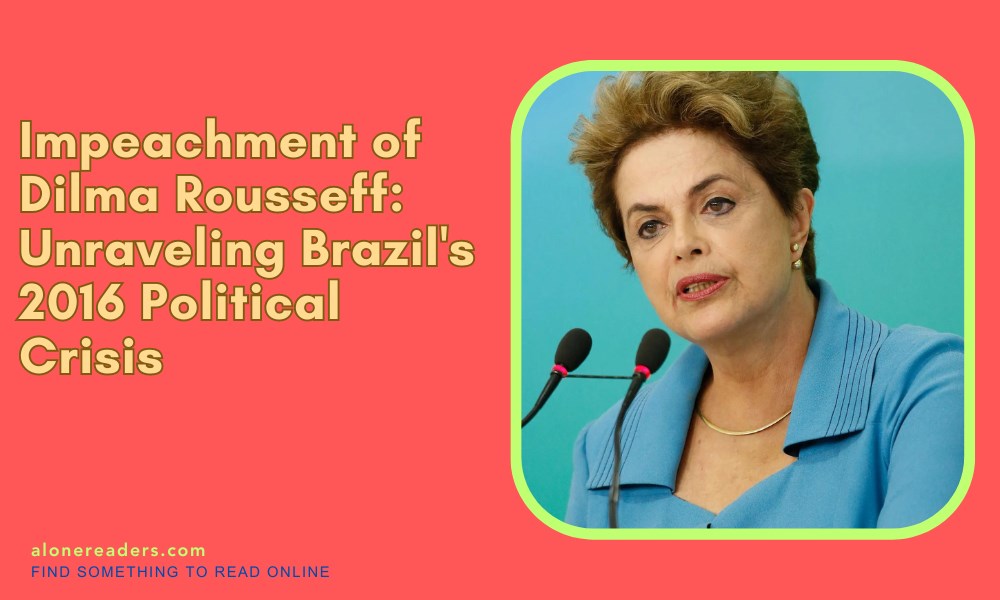
In 2016, Brazil found itself at the center of a significant political controversy that captivated not only its citizens but also the global community. This was the year when Dilma Rousseff, the then-President of Brazil, was impeached in a move that sent shockwaves through the corridors of power in Latin America’s largest democracy. The impeachment of Dilma Rousseff was not merely a legal procedure; it was a complex event enveloped in political maneuvering, mass protests, and a country deeply divided along ideological lines.
Dilma Rousseff, a member of the Workers' Party (Partido dos Trabalhadores - PT), had been in power since 2011. As the first woman president of Brazil, her tenure was marked by significant social programs and a dedication to reducing poverty. However, her presidency was also plagued by a national economic downturn and escalating public dissatisfaction. This unrest set the stage for the contentious events of 2016.
The formal charges against Rousseff were based on accusations of fiscal mismanagement. The primary allegation was that her government had used accounting tricks to conceal the true size of the budget deficit. These fiscal maneuvers, known as "fiscal pedaling," involved the government borrowing from state banks to boost the public treasury’s balance, which critics argued was done to artificially enhance the appearance of public finances.
The political climate at the time was extremely charged. Rousseff's critics argued that the impeachment was necessary to address the alleged manipulations and restore integrity to the presidency. On the other side, Rousseff and her supporters contended that the impeachment proceedings were a coup d'état, aimed at removing her from power by her political enemies, particularly given that many of those who were pushing for impeachment were themselves under investigation for corruption.
The process of impeachment began in December 2015, when the Chamber of Deputies of Brazil accepted a petition against Rousseff. Over the following months, the nation was gripped by a series of legal and legislative battles. In April 2016, the Chamber of Deputies voted overwhelmingly to proceed with the impeachment, and the case moved to the Senate. Rousseff was suspended from her duties in May, and Vice President Michel Temer assumed the role of acting president.
During this interim period, Rousseff fought vigorously to rally public support. Large-scale demonstrations occurred throughout Brazil, with tens of thousands of people taking to the streets both in support of and against Rousseff’s impeachment. These public demonstrations highlighted the deep societal divisions and the volatile mood of the Brazilian public.
The Senate's trial, which concluded in August 2016, was a highly charged and dramatic affair. After extensive debates and testimonies, the Senate voted 61 to 20 to impeach Rousseff, thus permanently removing her from office. This decision was not based on finding her guilty of corruption or embezzlement but rather on the allegations of fiscal mismanagement.
The aftermath of Rousseff's impeachment has had long-lasting impacts on Brazilian politics and society. Michel Temer’s administration continued until 2018 but was continually dogged by allegations of corruption and low approval ratings. The political environment remained polarized, with many of Rousseff's supporters viewing the impeachment as an illegitimate seizure of power.
Moreover, the impeachment had broader implications for political discourse in Brazil. It highlighted issues of corruption within the upper echelons of Brazilian politics and set a precedent for political accountability. However, it also exacerbated the cynicism among the populace about the motivations of their political leaders.
The impeachment of Dilma Rousseff remains a pivotal event in Brazilian history. It serves as a reminder of the complexities of governance in a vibrant democracy and underscores the volatile nature of political power. As Brazil continues to navigate its democratic processes, the lessons from 2016 linger, serving both as warnings and as guides for future political conduct.